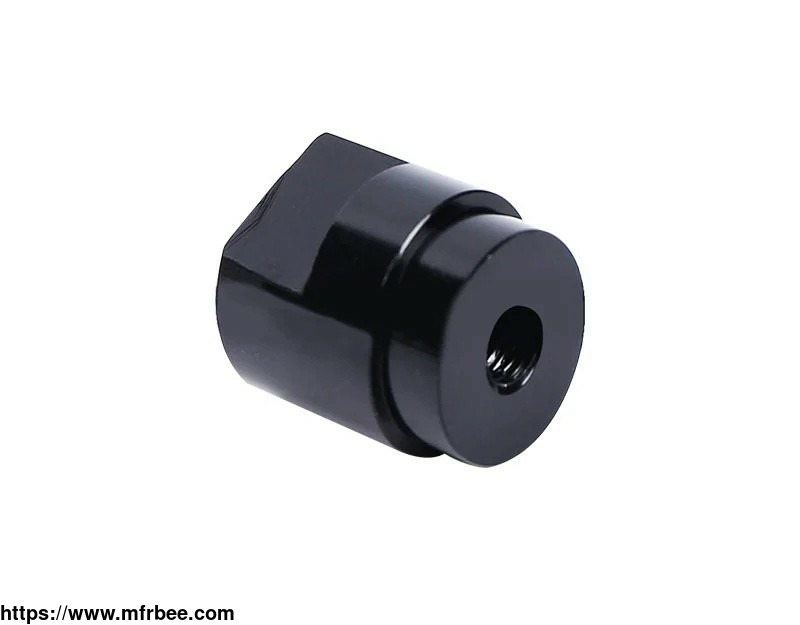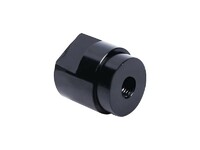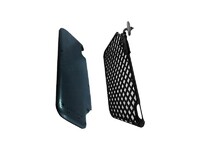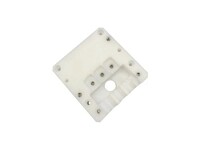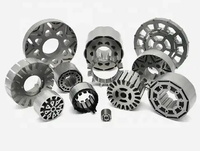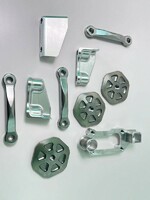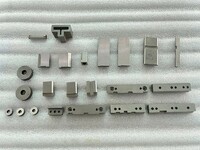Non-standard Parts
Specifications
Non-standard Parts
Standard parts are parts produced in accordance with national standards (GB), industry standards, or foreign standards, mainly for the convenience of maintenance and replacement, such as screws, keys, flanges, bearings, etc. are standard parts, which can be bought directly from the market when designing the required parts, without the need for special separate production, reducing costs and improving labor efficiency. Non standard parts are those parts that cannot be bought directly from the market and must be customized by contacting special manufacturers. Of course, the cost is higher, and some parts do not have a unified standard, and can not form a standard, such as gears, and pulleys. Therefore, non-standard parts must be processed separately.
As a specialist in the domain of non-standard parts, Huihuan consistently demonstrates its prowess in addressing the unique and unconventional demands of our clients. With a focus on precision engineering and customized manufacturing, Huihuan has become the go-to choice for clients seeking exceptional non-standard parts that meet the most stringent requirements and specifications.
Non-standard Parts of Different Materials
Nylon Non-standard Parts
Nylon often takes the place of brass, aluminum, steel, bronze and several other metals as well as several plastics, rubber and wood. It is also one of the most popular polymers used for industrial applications, as they can be processed precisely to the tightest specifications. It is a relatively low-cost plastic that is well-suited for parts requiring high tensile strength. Thus, the nylon non-standard parts are created.
POM Non-standard Parts
POM is a popular choice for easy machining for CNC operations, and it is an essential material of POM non-standard parts. It exhibits good mechanical performance, self-lubrication, good machining properties, and good dimensional stability. Acetal or POM is a very common and widely used engineering plastic. As such, POM plastics are very similar to high-performance plastics. This material does not require additional pretreatments during machining. Carbide drills are used and should always be kept sharp. This thermoplastic has a wide range of applications in industry.
PEEK Non-standard Parts
PEEK ( polyether ether ketone ) is a high-performance engineering plastic with resistance to harsh chemicals, as well as mechanical strength and dimensional stability, as one of the important parts of the PEEK non-standard parts. It is resistant to hydrolysis of steam, seawater, and water, and PEEK has the ability to maintain hardness at elevated temperatures. This engineering plastic has a proven track record in challenging environments such as aerospace, food and beverage processing, and semiconductors.
Steel Non-standard Parts
The processing of precision parts is roughly divided into two categories: standard parts processing and non-standard parts processing. Relatively speaking, the processing of non-standard parts is more difficult than the processing of standard parts. Hui Huan Machining has rich experience in non-standard precision machining, and all of our products made up of non-standard parts are customized according to your drawings. We specialize in CNC precision machining for milling, EDM, WEDM and grinding processes, and can also provide fixturing and non-standard part assembly services. A wide selection of materials and strict quality control to meet your requirements.
Brass Non-standard Parts
Hui Huan Machining has rich experience in non-standard precision machining, and all of our products are customized according to your drawings. As a professional non-standard parts manufacturer, we specialize in CNC precision machining for milling, EDM, WEDM and grinding processes, and can also provide fixturing and part assembly services.
Aluminum Non-standard Parts
Aluminum material has the advantages of lightweight and softness, good strength, good processing performance, good corrosion resistance, etc. For CNC processing of non-standard parts should choose high-speed steel tools and special aluminum tools. Choose a high-speed, high-feed processing method. Therefore, aluminum material is fit for producing non-standard parts.
The Impact of Non-Standard Parts on Manufacturing
Non-standard parts can have a significant impact on the manufacturing process, as they often require additional time, money, and resources to produce. These non-standard parts can also cause delays in production and increase costs due to the need for additional tools or machinery to create the parts. Additionally, the non-standard parts can create compatibility issues with other parts, leading to potential quality control issues. Finally, integrating non-standard parts into the manufacturing process can require additional training for staff to ensure that the parts are being used correctly and safely.
The Benefits of Standardizing Non-Standard Parts
Standardizing non-standard parts has many benefits for both manufacturers and customers. Standardizing non-standard parts reduces confusion and helps customers and manufacturers alike to quickly identify and replace parts. Additionally, standardizing non-standard parts can reduce costs for manufacturers by eliminating the need to manufacture parts that are not cost-effective to produce. This, in turn, can result in lower prices for customers. Moreover, standardizing non-standard parts can reduce the number of errors in manufacturing, since parts that are not standard can be difficult to identify and replace. Finally, standardizing non-standard parts can speed up the manufacturing process, since there is no need to search for, or manufacture, non-standard parts.
We are a professional china precision machining manufacturer focusing on OEM & ODM customized services of precision quality machining. We own a precision machining factory specializing in precision cnc machining, non-standard spare part processing, metal stamping and metal prototyping.
- Country: China (Mainland)
- Founded Year: 2013
- Address: Floor 3, Building 5, Hengji Industrial Park, Heyi Community, Shajing Street, Bao 'an District, Shenzhen
- Contact: Irene Fu
